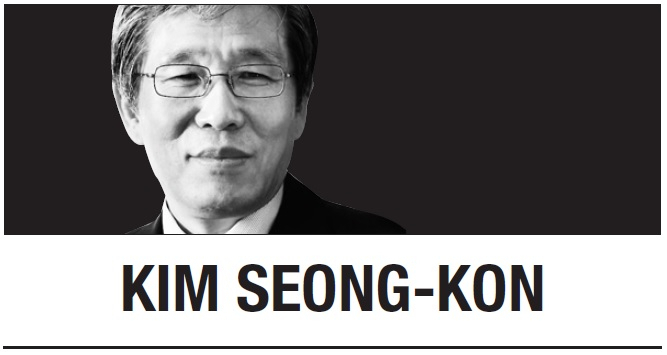
Since the late 1980s, the term “political correctness,” abbreviated PC, has been widely used by American liberals and radicals. “PC” was a term that described language or behavior that was meant to avoid offense to the socially marginalized. In the 1990s, therefore, one would frequently hear, “Is it politically correct?” or “Is he politically correct?” At that time, you should be very careful not to say or do anything “politically incorrect.”
Initially, therefore, the intention of PC was good, and it made people avoid “forms of expression or action that are perceived to exclude, marginalize or insult groups of people who are socially disadvantaged or discriminated against,” as Oxford Languages Dictionary defines the term. At the time, people began using PC terms such as “African Americans” and “Native Americans” instead of Black people and Indians.
As radicals pushed it to the extreme, however, PC soon turned into a stifling dogma, an oppressive ideology that, as Time magazine put it, became a ubiquitous form of “thought police.” As a result, censorship and surveillance ran rampant. Universities fired professors who had offended students by saying even mildly inappropriate remarks on racial issues in class. Naturally, professors became very cautious about their lectures and class discussions.
Meanwhile, some radical African American scholars condemned even great American writers and scholars simply because they used the “N-word” in their works, which was a trend in their times. For example, radicals criticized Mark Twain as a racially biased writer due to his use of the “N-word” in his novel “Adventures of Huckleberry Finn,” ignoring the fact that it was a pointedly anti-slavery novel.
They also denounced another great American writer, William Faulkner, for the same reason, completely forgetting that Faulkner opposed the segregation of African American students and fought for civil rights. Those radicals even censured the famous liberal critic Leslie Fiedler as a conservative for the same reason. In fact, however, Fielder devoted his life and career to defending the rights of Native and African Americans.
The term political correctness derived from the Bolsheviks after the Soviet Revolution in 1917. For the Marxists-Leninists, therefore, being PC meant loyalty to the official doctrine of the Communist Party. According to historians, the term PC also appeared in the 1930s, referring to dogmatic adherence to the ideology of Nazi Germany.
Naturally, American conservatives and Republicans detested PC and felt that a great American tradition was falling apart at the hands of left-wing radicals and minorities. Rust Belt workers, too, were frustrated and angry because they thought minority immigrants took away their jobs. Therefore, it was no wonder that Donald Trump, whose slogan was “Make America Great Again” could march into the White House triumphantly, enjoying enormous popularity from his ardent supporters during his tenure.
In the 2010s, another important term, “woke,” emerged in the US. “Woke” means to be “alert” or to “awaken” to prejudice, discrimination, or social inequalities in American society. The “woke” campaign has raised awareness of not only racial bias, but also gender prejudice in American society.
In the 2020s, however, conservative right-wing people began using the term in order to deride the progressive leftist movement. Therefore, these days, the question, “Are you woke?” cynically implies, “So, you think you are special because you’ve awakened to minority issues, huh?” or “So, you think you are morally superior?”
When liberals criticize Donald Trump for polarizing American society into two antagonizing groups, American conservatives disagree; they argue that America was already divided due to the extreme PC movement before the Trump era. By voting for Trump, therefore, American right-wing conservatives began counterattacking and pursuing a political vendetta.
The valuable lesson we can learn from the PC movement is that if you push it to the extreme, even a good campaign may turn into a stiff dogma, a rigid ideology and a stilted form of “thought police,” all of which tend to deteriorate liberal democracy, and devalue individual freedom and warm humanity. That is why moderation is important. Indeed, the reconciliation and harmony between the right wing and the left wing, between conservatism and liberalism, is prerequisite to an ideal society.
Compared to the PC movement that has gone extreme, “woke” seems to be rather mild and gentle. In fact, there is nothing wrong with being alert to social injustice. Unfortunately, “woke” has become an object of derision by right-wing conservative people who vividly remember the tyrannical self-righteousness of the PC campaign.
Watching the PC and “woke” campaigns in American society, we come to realize that we should avoid extremes at all costs. In Korean society, too, we find extremism in every nook and cranny. We often push something too far and live under the surveillance of “thought police.”
Extremism will ruin everything, including initial good intentions, and inevitably invite other extreme measures in protest. Among the 13 values Benjamin Franklin presented, “moderation” is what we need most in these hostile times.
Kim Seong-kon
Kim Seong-kon is a professor emeritus of English at Seoul National University and a visiting scholar at Dartmouth College. The views expressed here are his own. -- Ed.






![[Today’s K-pop] Blackpink’s Jennie, Lisa invited to Coachella as solo acts](http://res.heraldm.com/phpwas/restmb_idxmake.php?idx=644&simg=/content/image/2024/11/21/20241121050099_0.jpg)
